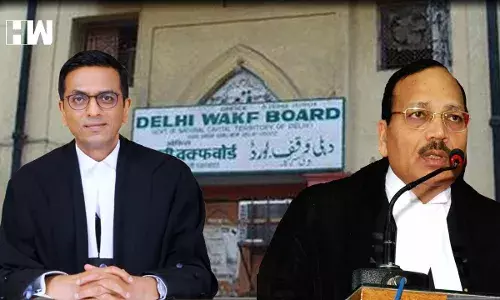A plea filed in the apex court, which called the Waqf Act a violation of the rights of Hindus and other non-Islamic communities, has been scrapped by SC, saying it doesn’t entertain challenges to legislation in the abstract” or allow “publicity stunts”. It cannot direct the parliament, the two-judge bench said and asked the petitioner – BJP leader and lawyer Ashwini Upadhyay — to approach an appropriate forum.
Justice Chandrachud, reacting on the plea, said: “Is there a particular case? Show us the facts of a particular case, if you have been prosecuted under the law. We don’t entertain challenges to legislation in the abstract.”
“Has your property been taken or you have been evicted?” questioned Justice Surya Kant.
When the BJP leader sought permission to read out a note aloud from the petition, the judges said, “We don’t want this publicity stunt by making you read out the note in court”.
Highlighting that the demand in the plea is within the constitutional domain of Parliament, Justice Chandrachud said: “You are saying that there should be a common law for all trusts, which is within the constitutional domain of Parliament. We cannot direct the Parliament.”
“We have to be very careful on the constitutional validity of a law. You have to be very careful when you challenge a law that has been enforced by a legislative body,” he added.
The petitioner had contended that the Waqf law “violates the right to equality and right to religion,” the petitioner had sought a uniform code for trusts, charity institutions, etc. He said parliament cannot make a special law to deal with trusts of a particular religious community.
“A separate law cannot be made to deal with Waqf alone, when other religions do not have a common central law governing the functioning,” the petition read.
“The public in general suffers because of the unbridled powers being given to the Waqf Boards and special status to the Waqf properties. (This way) Others are being discriminated against and denied equal protection of the law,” the petition further added.
“There are interests of Hindu, Jain, Buddhist, Sikh and other non-Islamic religious communities involved in the matter… Disputes between communities relating to religious properties could only be settled by a civil court,” it had mentioned.
As an independent media platform, we do not take advertisements from governments and corporate houses. It is you, our readers, who have supported us on our journey to do honest and unbiased journalism. Please contribute, so that we can continue to do the same in future.

